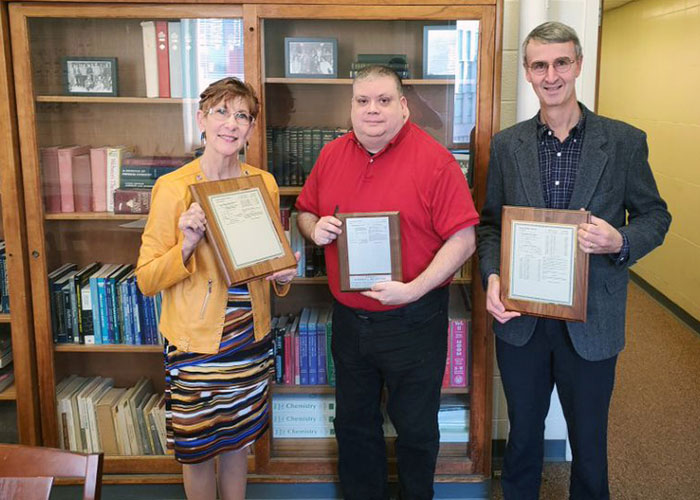International Food Scientist Once Called Drexel Home
By Fraser Fleming, PhD, Department Head of Chemistry
April 29, 2020
Anthony Del Vecchio, BS/MS chemistry ’63, was a Drexel alumnus who enjoyed a distinguished career as an international food scientist, and who passed away the end of April 2019. As a result of his work, he was awarded multiple patents, which are now on display in the chemistry department conference room and the library in Disque Hall. Fraser Fleming, PhD, department head of chemistry, had the opportunity to chat with his wife, Elizabeth Del Vecchio, and son Anthony Del Vecchio Jr., about his life and his work.
Dr. Fleming: Tell me a little bit about Tony.
Elizabeth Del Vecchio: Tony grew up on Glenolden in a very modest Italian family. He was the very first person in his family to graduate from both high school and college. He had a life-long interest in chemistry. A family doctor encouraged him to apply to Drexel, and he came to Drexel and was a part of the co-op program. He felt it was one of the most valuable parts of his education, because he got to try all these different types of chemistry and focus on what he wanted to do with his career. He graduated with his bachelor’s in ’63 and immediately started the master’s program. His focus was food science chemistry, and he became a specialist in emulsifiers.
He ended up at Pillsbury in Minneapolis as the VP of Food Development. He developed patents on things like Pillsbury pop up and Pillsbury pie crust. Then, as VP of Licensing, he would fly around the world, look at the companies that Pillsbury was interested in acquiring, look at the technology, and determine if they should be interested. He negotiated the acquisition of Haagen-Dazs ice cream. One day, Tony said, “This recruiter called me about a job in Davis, California, and I’m going!” This company was Celgene, and their focus was biogenetic engineering of food crops.
FF: They’re in Summit now, right?
EDV: They were acquired by Monsanto eventually. Tony went out there and interviewed with them, and they asked what he knew about bioengineering of food crops. He looked at them and said, “Well, I watched Jurassic Park!”
Two of his patents are actually from work at Celgene. Tony has a patent on canola. He’s the one that created canola out of rapeseed. Tony really got interested at the end of his career in biogenetic engineering. He developed a tomato that would stay ripe forever. It was really interesting that he would develop these things but not allow us to eat them.
FF: Tell me a little bit about the Del Vecchio company incorporated.
EDV: While in Minnesota, companies would come to him and he’d help them with sourcing their food product. He would go to the company and see what their goals were, then go out and source the food product for them.
FF: Do you know where he went on co-op while at Drexel?
EDV: He went to a plant in Pennsylvania that manufactured dynamite and gunpowder, out in the middle of nowhere. He said that was interesting to him because he was a city boy. The whole thing was fenced in, and at the start of hunting season, all these deer would show up at the gate, and they would open the gate because they knew they were safe. It was funny.
FF: Do you know how your husband became interested in chemistry initially?
EDV: I think it was the family doctor. Tony was really smart, excelled in school, and had some very good science teachers. He actually graduated from high school two years early. He was very young at Drexel. One of his professors showed him how to take an animal and use chemicals to reduce it down to the skeleton. His undergraduate minor was American literature, and he enjoyed collecting books, so I have 11,000 first-edition books at home, most signed by the authors.

Elizabeth Del Vecchio, Anthothy Del Vecchio, Jr. and Fraser Fleming, PhD
FF: What type of literature did he like?
EDV: Fine literature, mystery books, lots and lots of nonfiction, of course. He would write a review of every book he read and put it on this website called Goodreads. He would have authors that would send him their books and ask if he could put some comments. He would say, “Yes, but my comments will be honest — do it at your own peril.”
We were married 35 years, and it was a really good marriage. Until the end of his life Tony was constantly educating himself, always seeing what was new and what he needed to learn. That’s what Drexel gave him.